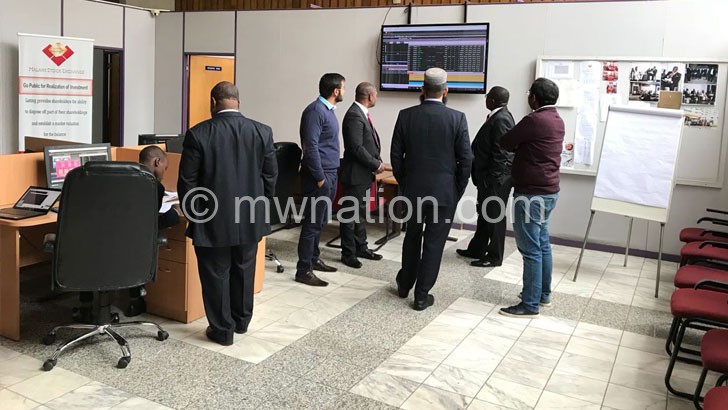Eight counters lose share value on MSE
Eight of the 16 counters on the Malawi Stock Exchange (MSE) have lost their share value, an analysis by Business Review shows.
Figures from MSE show that the Malawi All Shares Index (Masi) has dropped 896.27 points from 113 970.89 during the week ending October 27 to 113 074.62 yesterday. The drop was largely driven by the loss of value in the Domestic Share Index, which dropped 841.06 points from 89 672.09 to 88 831.03 points.
However, the Foreign Share Index (FSI) gained 55.61 points from 14 993.27 to 15 048.88 during the same period.
A closer analysis shows that seven counters, namely Airtel Malawi plc, FDH Bank plc, Icon Properties plc, NBS Bank plc, Nico Holdings plc, Press Corporation plc and TNM plc all dropped shares in the period under observation.

The drop follows an unprecedented surge in share prices on the listed counters since the turn of the year as the MSE drew both new and existing investors to the stock market to use the high earning in the market to turn a profit and protect their investment from inflation.
Personal finance management expert Audrey Mwala said the drop in value is part of the normal cycle or fluctuations in the stock market and allayed concerns that it meant that investors would lose out in the long-run.
She said: “The stock market goes up in cycles, there are highs and lows in the short and medium term but when you analyse the trends and cycles over the long-term, you see that prices are always moving in an upward trajectory.
“So, the investors may have lost a portion of their earnings, but they have gained overall. That is what the stock market is all about. It is for long-term investors.”
In a separate interview, economic analyst Bond Mtembezeka agreed with Mwala, saying it is a “common occurrence for a stock market to decline when it has enjoyed a rise in share value and profits”.
In a WhatsApp response, he said the outlook was mixed because the devaluation of the 44 percent kwacha that the government implemented may affect the performance of entities, especially those that have significant exposure to foreign exchange.
Said Mtembezeka: “Furthermore, the devaluation may affect investment decisions because a devaluation essentially reduces an economic agent’s purchasing power through price increases. So, investors tend to rethink their investment decisions and that can affect the stock market.”
In an earlier interview, MSE operations manager Kelline Kanyangala said the growth in profits led to a growth in demand on the counter because more investors were looking at the “stock market as an avenue where they can preserve and create value for their investment in light of the macroeconomic developments”.





